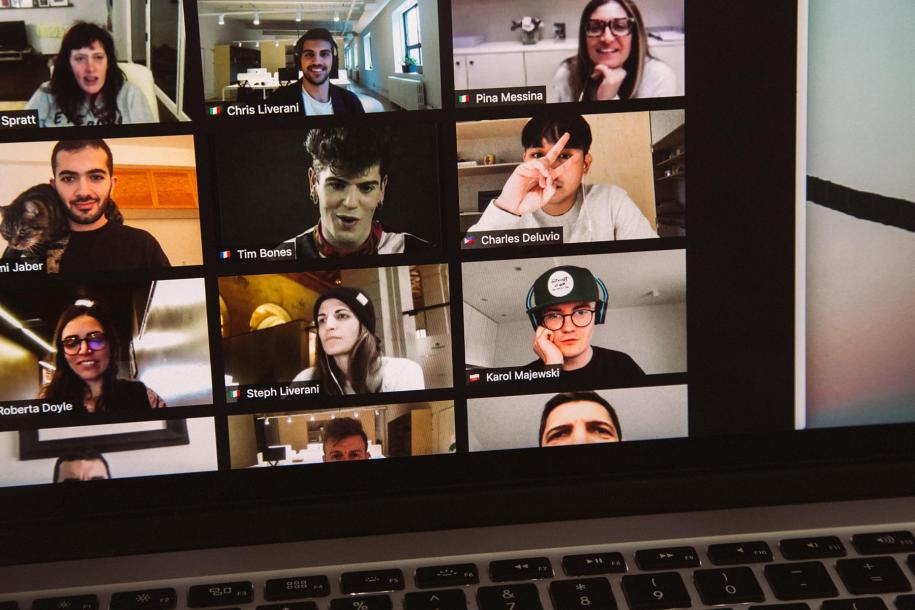NCDD member org, The National Civic League released the 2020 Fall Edition of the National Civic Review, published in collaboration with NCDD member, the Kettering Foundation. This esteemed quarterly journal offers insights and examples of civic engagement and deliberative governance from around the country. Friendly reminder that NCDD members receive the digital copy of the National Civic Review for free! (Find the access code below.) We strongly encourage our members to check out this great resource and there is an open invite for NCDD members to contribute to the NCR. You can read about NCR in the post below and find it on NCL’s site here.
National Civic Review Fall Edition 2020 – Access Code: NCDD20

As this edition of the National Civic Review goes out, our nation is approaching a crucial presidential election, dealing with a terrible pandemic and grappling with vexing racial disparities. An article by Martín Carcasson discusses approaching the challenge of public deliberation as a “wicked problem,” in other words, an issue or challenge with conflicting underlying values and no technical solution. Perhaps at this juncture we are in a wicked time, a period with similar attributes of conflicting values and complexity. This edition of the Review was published in collaboration with Charles F. Kettering Foundation. We hope the articles in the edition will provide some ideas and tools to rally communities across the country to address complex issues and thrive.
You can access this edition by going directly to the table of contents and entering your access code (NCDD20) when prompted.
One of the Nation’s Oldest and Most Respected Journals of Civic Affairs
Its cases studies, reports, interviews and essays help communities learn about the latest developments in collaborative problem-solving, civic engagement, local government innovation and democratic governance. Some of the country’s leading doers and thinkers have contributed articles to this invaluable resource for elected officials, public managers, nonprofit leaders, grassroots activists, and public administration scholars seeking to make America’s communities more inclusive, participatory, innovative and successful.


 Via Peter Levine on email list for the annual
Via Peter Levine on email list for the annual  The National Issues Forums Institute (NIFI) is now accepting applications for the Elizabeth “Libby” Kingseed Teaching with Deliberation Memorial Award at this time. A fund established to commemorate and in memory of Libby Kingseed.
The National Issues Forums Institute (NIFI) is now accepting applications for the Elizabeth “Libby” Kingseed Teaching with Deliberation Memorial Award at this time. A fund established to commemorate and in memory of Libby Kingseed. Libby Kingseed was a program officer, and archivist at the Kettering Foundation. Libby was a passionate leader of the foundation’s K-12 civic education research. She worked closely with teachers using National Issues Forums in the classroom. Libby recognized the need for civic education to be included in the education of children in order to help them understand how to be active, engaged citizens in the future.
Libby Kingseed was a program officer, and archivist at the Kettering Foundation. Libby was a passionate leader of the foundation’s K-12 civic education research. She worked closely with teachers using National Issues Forums in the classroom. Libby recognized the need for civic education to be included in the education of children in order to help them understand how to be active, engaged citizens in the future.
 “We cannot simply retrofit our in-person reality to the online space. But we can stay grounded in our shared purpose, and design accordingly.”
“We cannot simply retrofit our in-person reality to the online space. But we can stay grounded in our shared purpose, and design accordingly.” We designed a new exercise to use collective reflection as a way to observe this moment of dynamism and change more deeply and clearly. We invited the participants to reflect on the negative patterns exacerbated by the transition to virtual spaces, as well as the patterns that are serving their community well in this stressful moment.
We designed a new exercise to use collective reflection as a way to observe this moment of dynamism and change more deeply and clearly. We invited the participants to reflect on the negative patterns exacerbated by the transition to virtual spaces, as well as the patterns that are serving their community well in this stressful moment. AllSides and Living Room Conversations request your help! Please sign up for the AllSides Connect “Hackathon,” taking place this week – August 18th, 19th, and 20th.
AllSides and Living Room Conversations request your help! Please sign up for the AllSides Connect “Hackathon,” taking place this week – August 18th, 19th, and 20th. The Mathews Center will host its annual Civic Institute on August 21st, 2020
The Mathews Center will host its annual Civic Institute on August 21st, 2020

